Final Fantasy 7 Remake's Developers Tried to Avoid Playing Favorites With Tifa and Aerith
Co-Director Naoki Hamaguchi and Producer Yoshinori Kitase tell us about giving Tifa and Aerith equal time, how their vision for the remake evolved over time, and more.
This article first appeared on USgamer, a partner publication of VG247. Some content, such as this article, has been migrated to VG247 for posterity after USgamer's closure - but it has not been edited or further vetted by the VG247 team.
Final Fantasy 7 has always been split between Tifa fans and Aerith fans. Either you like Aerith because she's kind-hearted but also sort of goofy, or you like Tifa because she's strong and cool. Final Fantasy 7 never quite puts the two in conflict, but it definitely pushes you to choose between them, your decision ultimately culminating in a date at the Golden Saucer. [Aside: Yuffie is actually the best of them.]
When it came for Final Fantasy 7 Remake, the development team observed that many fans were on "team Tifa or team Aerith," says Co-Director Naoki Hamaguchi. Many fans even accused the development team of favoring one over the other. Indeed, if you look at the original game, Tifa is definitely an important character, but it always feels as if the story is pushing Cloud and Aerith together. You could even argue Aerith is the real hero of the story, where Tifa exists more to push Cloud's character arc along.
The social media discourse led to Hamaguchi and the rest of the Final Fantasy 7 Remake development team putting considerable thought into how much screentime they would give Aerith and Tifa. "[W]e have been very conscious about the player’s amount of time with Tifa and Aerith and keeping it equal. Additionally, we would make sure their representation in-game is balanced as well; for example, if there is a special event scene for Tifa, then we would prepare something similar for Aerith as well."
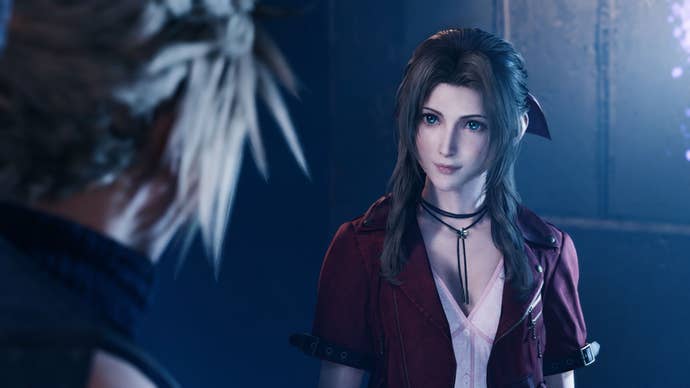
The message is clear: Tifa and Aerith are both heroes in this reimagining. It helps that Tifa has a big role to play in the Midgar arc that dominates Part 1 of Final Fantasy 7 Remake, and thus appears in several important scenes. With Final Fantasy 7 Remake featuring far more elaborate graphics than the blocky kewpie doll characters of the original game, more subtle characterizations are now possible for Square's second go-around with the landmark JRPG. Or at least, Hamaguchi hopes so.
"[T]his is not limited to Tifa and Aerith, but the original game featured very stylized character models, which made for very exaggerated reactions in conveying their emotions to the players," Hamaguchi says. "With much more expanded breadth of graphical expression for this title, we are able to convey emotion with their facial expressions, and provide an even more dramatic presentation in telling the story."
Behind The Evolving Vision of Final Fantasy 7 Remake
Final Fantasy 7 Remake's handling of Aerith and Tifa is part of a broader philosophy on how to approach one of the most ambitious remakes in modern gaming history. In short, Square Enix wants to build on what appeared in the original game, and bring out elements that were only hinted at. You can see it in the opening cutscene; the way that it shows kids playing on the familiar cat-shaped playground equipment outside Sector 7, then segues into an updated version of the original game's classic opening.
Hamaguchi admits that Square Enix was a little uncertain how to approach the remake at first. "I believe this can only be said because we are so close to launch, but there was a time where I was trying to wrack my brain on what concepts to hold on to, in order to meet fans' expectations for the remake of such a beloved title like [Final Fantasy 7]."
The trick, he realized, was to lean into the original material as much as possible. "What I have personally come to realize, through trial and error, was not to create a completely new work merely borrowing the setting of the original [Final Fantasy 7], but to revive elements that are beloved by the fans," Hamaguchi says. "And without changing them, expand how they are depicted, utilizing the advancement of technology and game design over the last 20 years. In order to be accepted by the players of [Final Fantasy 7 Remake], we thought to retain the elements that people love and just change the presentation in a way that modern gamers would enjoy."
In other words, Final Fantasy 7 Remake stands to be very faithful to the original game, if not exactly slavishly devoted to its source material. Still, there are differences, which I pointed out when I played the demo about a month ago. Some of those differences are quite large.
Nevertheless, even the biggest differences are rooted in the original game in the same way, Hamaguchi says. "Every concept in the game has been expanded from elements of the original title in some way, and I believe that we were able to produce a game that will leave a lasting mark in regard to remakes in the entertainment industry."
On the Subject of Summons
When it comes to the gameplay, one element that caught my attention is how Final Fantasy 7 Remake handles summons. If you played the original game, you'll recall that Ifrit and Neo-Bahamut could be called upon at basically any time so long as you had the MP. By contrast, summons are far more restricted in Final Fantasy 7 Remake, only available in certain battles.
The flipside is that summons are far more powerful than before. When summoned, Ifrit will stick around for a long period of time, and can repeatedly use extremely strong attacks. If you time it right and summon right as an enemy is staggered, you can take off a quarter or more off their health bar.
Hamaguchi says the decision to not allow the "willy-nilly" usage of summons was undertaken in the interest of keeping the battles fresh and interesting. "This isn't limited to summons, but, whenever we introduce features that can be used constantly, we have to establish proper advantages and disadvantages in the battle design. If we don't, the function becomes the only effective path to win the battle, thus making it become simple and repetitive."
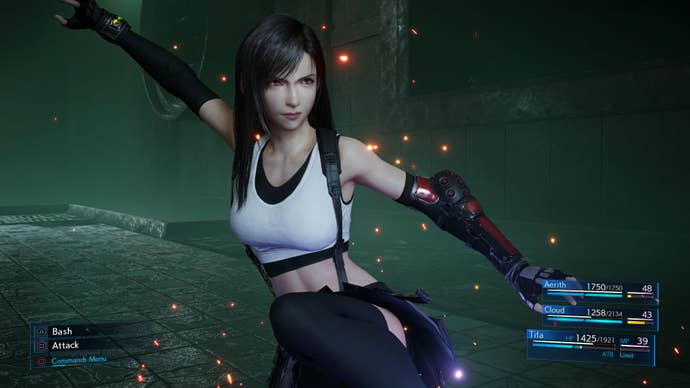
Basically, summons are meant to be Final Fantasy 7 Remake's "fever time"—a reference to games where you can rack up massive score multipliers in certain situations. They aren't just a cool but ultimately same-y way to do large amounts of area damage; they are part of the rhythm of the combat.
"We determined that, for it to remain in the player’s mind as a memorable experience, it should be a benefit in battle," Hamaguchi says. "[B]y limiting the conditions to call them forth and change it from the original so that you consume zero MP, and by featuring it as a sort of 'fever time,' this allowed for us to incorporate summons into the battle design while maintaining a good balance."
Final Fantasy 7's Message in 2020
For all of its fantastical elements, what remains especially striking about Final Fantasy 7 is how political it can be. In the final part of his deep dive into the original game, contributor and former USgamer Editor-in-Chief Jeremy Parish wondered if its premise could pass muster in the modern era.
"The original FF7 script almost—almost!—managed to engage with its protagonists' less-than-heroic actions in a meaningful way. The question now is, will the game's upcoming remake make good on that potential? Or will the nature of Avalanche be changed altogether?" Parish wrote. "It's hard to imagine how FF7 could work without Cloud and his allies attempting to destroy Shinra from within, but it's also hard to imagine rooting for the 'good guys' if the script takes a casual view of acts of rebellion that remind us of the worst headlines we see everyday."
Final Fantasy 7's sometimes radical politics also tie into a broader theme of environmentalism. One of its central plot points involves Barret leading a radical wing of Avalanche against the Shinra corporation in order to stop them from draining the planet's life force. Eco-terrorism was very much in the headlines in 1997, but Final Fantasy 7's themes take on a different character in light of pressing issues like global climate change. In many ways it feels like the planet really is dying… or that it will one day become uninhabitable for humanity. The question of whether humanity will survive Meteor sure feels different in that context.
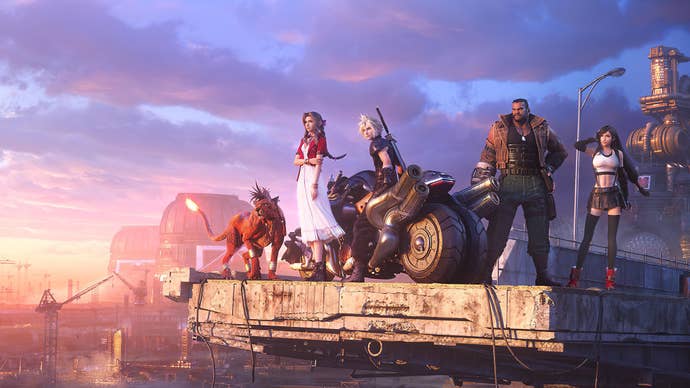
Producer Yoshinori Kitase acknowledges these links, but mostly downplays them. "Compared to when the original title was released, the social conditions have changed a great deal. Same goes for issues regarding the environment, which change from day to day. However, the message depicted in Final Fantasy 7 is strictly within the realm of fantasy, and so it is something more universal.
"[W]e are not drawing attention to something in particular, but rather depicting something universal, to fit into the realm of fantasy. We wanted to leave room for people to swap it out with problems they can relate to."
Nevertheless, Final Fantasy 7's politics are still very much front and center in the remake, and in some ways they're amplified. A good chunk of the demo, which encompasses the opening section of Final Fantasy 7 Remake, is Barret railing against Shinra killing the planet. When Cloud and company exit the burning Mako Reactor, they find the streets of Midgar in chaos, with emergency announcements and wailing bystanders driving home the consequences of their actions.
Such moments don't feel strictly confined to fantasy. Indeed, as the planet grows hotter and corporations' nefarious impact more dominant, Final Fantasy 7's vision of a grey dystopia beneath a steel sky (a "rotting pizza" as Barret would say) feels all too real.
We're now just under two weeks out from the release of Final Fantasy 7 Remake. It will mark the end of a journey that arguably began 15 years ago with a PS3 tech demo. Well, it will be the beginning of the end, anyway. Square Enix still has an unspecified number of additional episodes to release before Final Fantasy 7 Remake is truly "complete."
Regardless, after years of fervent speculation, we'll soon be able to see for ourselves Square Enix's vision for Final Fantasy 7 Remake (or if you're in Australia or Europe, you can pretty much play it right now). It's a strange and exciting feeling; the end of an era. I can't wait.
Final Fantasy 7 Remake releases April 10 on PlayStation 4.
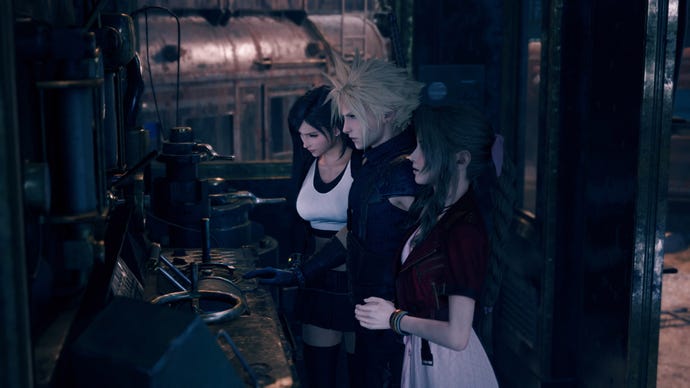





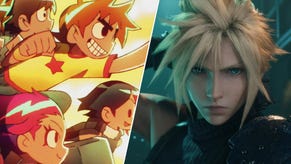
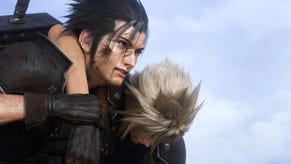


.jpg?width=291&height=164&fit=crop&quality=80&format=jpg&auto=webp)